The Fourth of July is tomorrow, and people across the US will be celebrating the nation’s independence with parties, barbecue and fireworks.
But while fireworks are a traditional part of the annual festivities, not everyone is a fan — especially our four-legged friends. Many dog owners will spend the Fourth comforting a very scared pet.
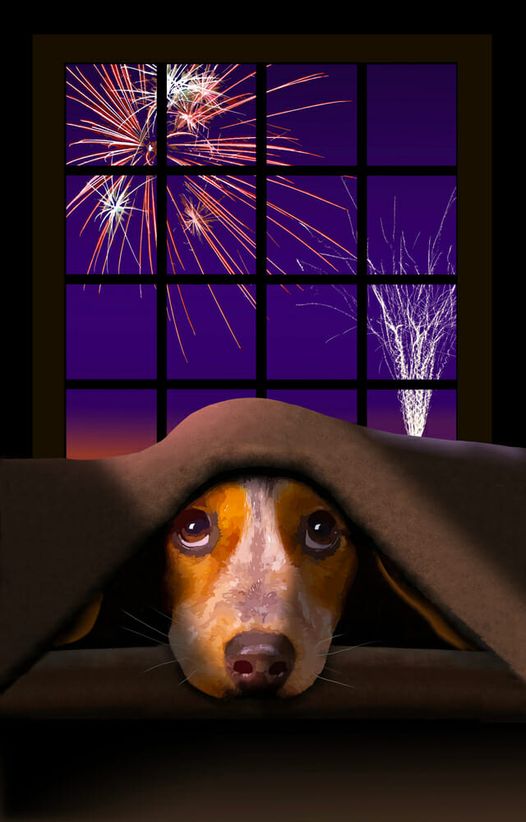
Many dogs are terrified of fireworks, for an understandable reason: they have much more sensitive hearing than humans, so the loud explosions outside can cause them great stress. Dogs can also be triggered by the smell and flashing lights of fireworks.
“It smells and sounds terrifying to them, almost like it would if we were in a battle and weren’t expecting it,” veterinarian Diana Watkins told USA today.
Keep your pets indoors
First, the obvious: don’t take your dog to where there will be fireworks. It may be convenient for you to take your pet to that fireworks show at the park, but it will likely be a very bad time for them.
On top of that, many dogs go missing on the Fourth of July: they perceive the sound of fireworks as a threat and it triggers a fight-and-flight mood. Many dogs attempt to flee from danger and get lost from home.
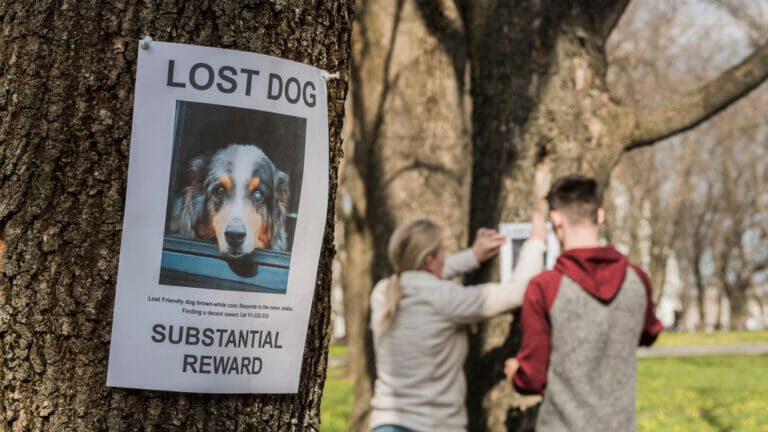
“It’s oftentimes hard for them to get back home because by the time they have come to their senses and calm down a bit, they’re too far,” Watkins told USA Today.
According to AP, shelters expect an increase of 30%-60% in new arrivals as dogs go missing. “This is something that the shelter world dreads all year long,” Kim Powell of Maricopa County Animal Care and Control said. “We started talking about planning ahead of this back in March.”
“When they get spooked, they’re not thinking rationally so it’s best to just be with them, keep an eye on them.”
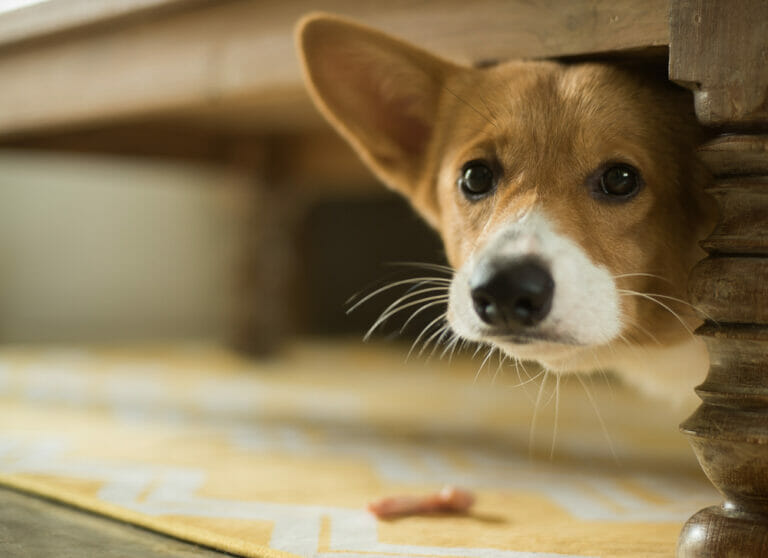
Because of the increased danger of pets running away, it’s best to keep them indoors altogether. And as always, make sure your pet has identification on their collar and are microchipped with updated info, just in case they do run off.
It’s also a good idea to walk your dog earlier in the day, before the fireworks start.
Desensitizing dogs to fireworks
One way you can prep for the Fourth of July is to expose your dog to the sound of fireworks, gently desensitizing them to the sound.
Playing videos of fireworks, and gradually increasing the volume, can help your dog get used to the sounds. You can even condition them by giving them their favorite treats during the firework sounds, creating a positive association.
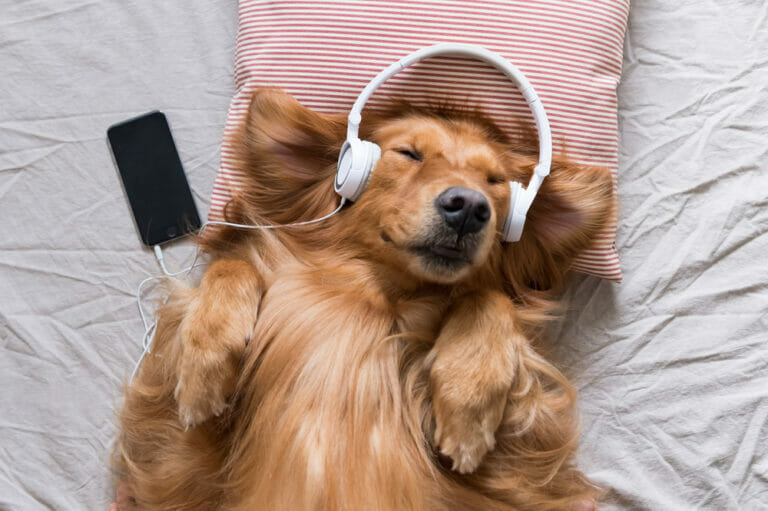
“The volume should be low enough that your dog can notice it, but does not show signs of stress like panting, pacing, leaving the area, or trying to hide,” certified behavior consultant Jenn Stanley told AKC
“If the dog is overwhelmed, they’re looking to escape the situation and are not going to be nearly as capable of learning that it’s not a threat.”
ThunderShirt, anxiety medications
Even indoors, dogs can still be scared by the sound of fireworks outside. But there are a number of available options to help you keep your pet calm.
One popular solution is the Thunder Shirt, a vest for dogs that applies gentle pressure to help relieve their anxiety during thunderstorms and fireworks. According to their site, the product is used by millions of dogs.
You can also talk to your vet about prescribing your dog anti-anxiety medication. If you can’t get a prescription in time, you can also try over-the-counter supplements like CBD and dog calming treats, or calming pheromone diffusers.
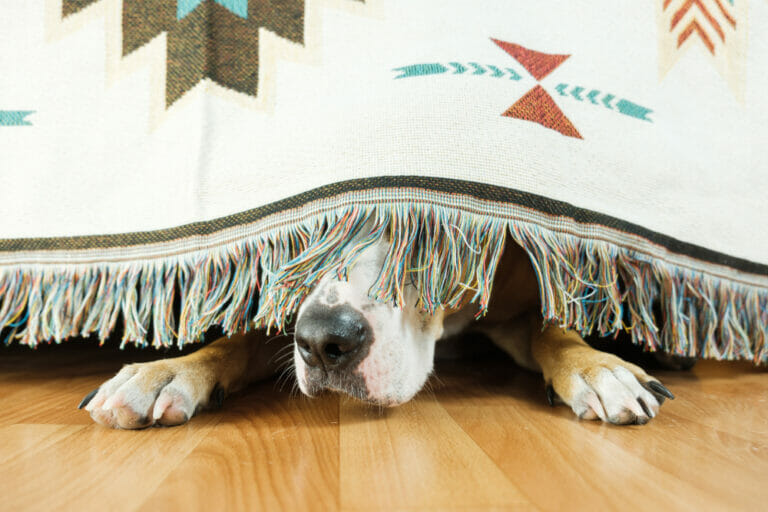
Creating a safe space for your dog
Probably the most important thing you can do for your dog is just being there for them during their panic attack, and making sure they have a safe and calming space in your home.
Owners of frightened pets should close the windows and blinds/curtains — dogs can be triggered by the sight as well as the sound — and prepare a space with their favorite dog bed, blankets and toys.
From there, you can comfort your dog the way you normally would: with some loving pats, scratches and their favorite treats. Playing music or white noise can also help to distract them from the sound of fireworks.
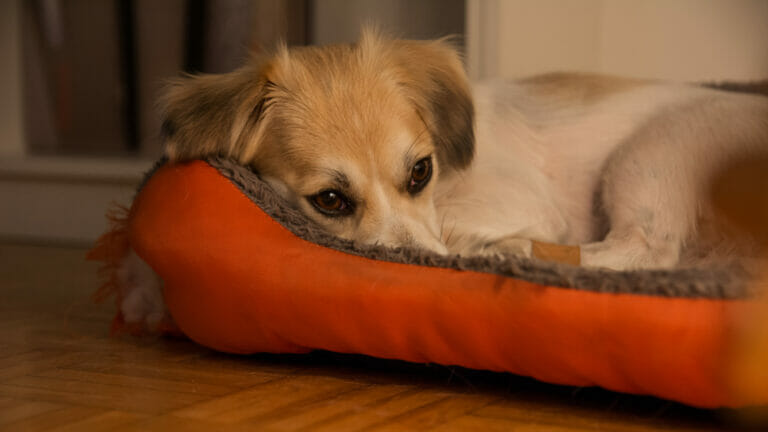
Experts say the best thing you can do is to stay calm and be a reassuring presence for your pet.
“You absolutely can and should comfort your dog if he’s afraid,” Stanley told AKC. “It’s important to remain calm and use a soothing, even tone. Petting them can be comforting — long, slow, firm strokes along the length of their body are typically very soothing.”





